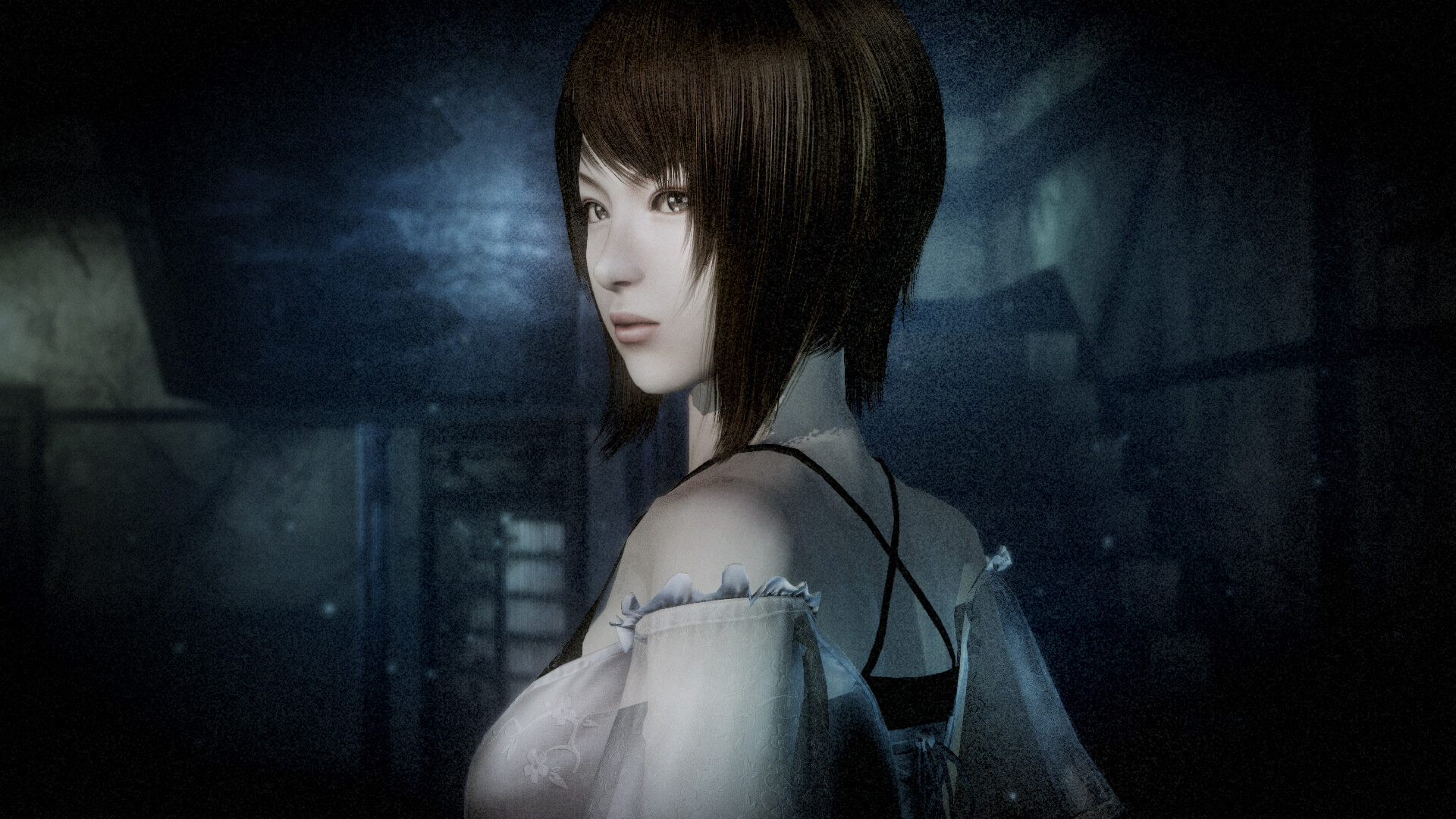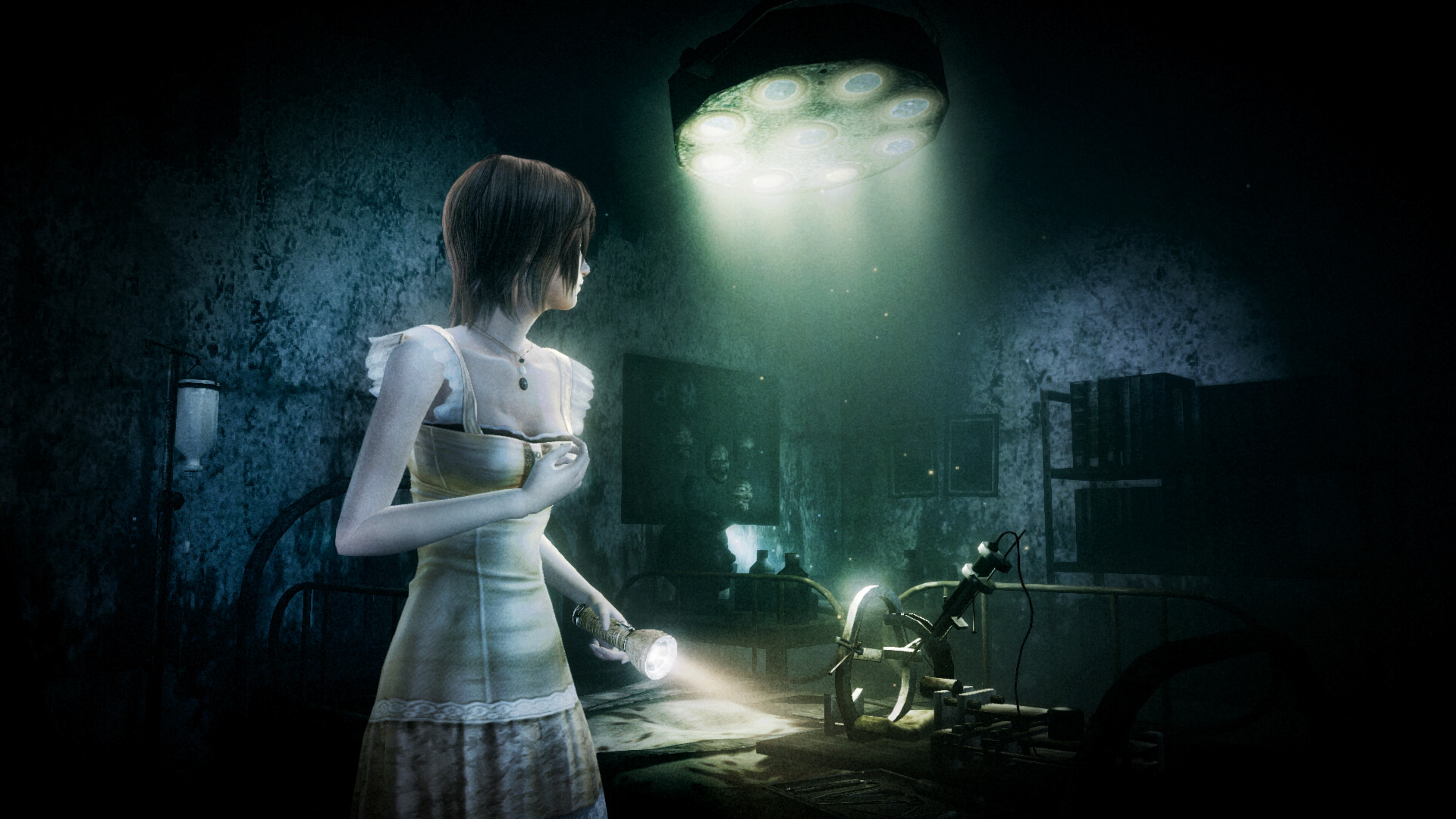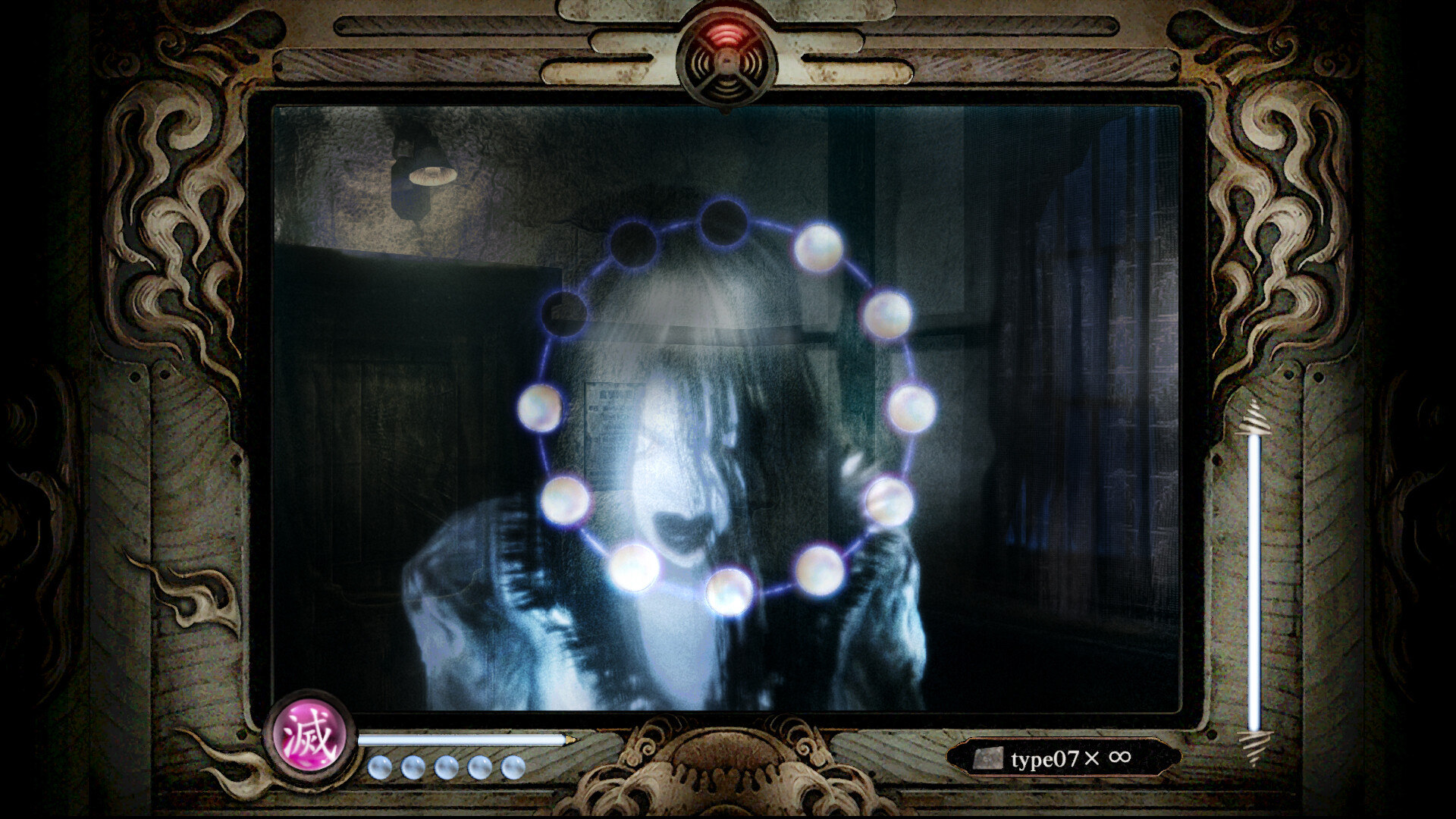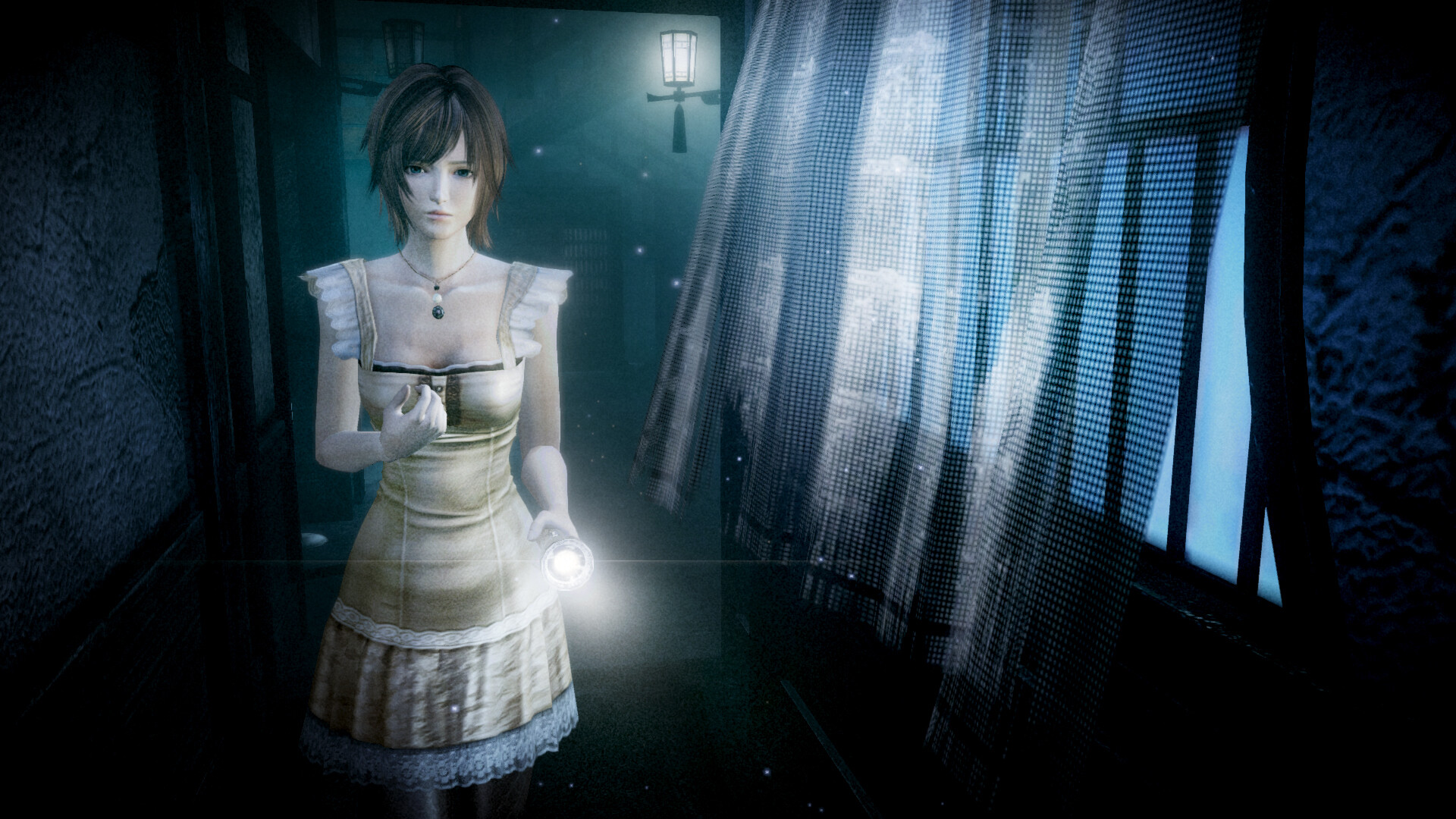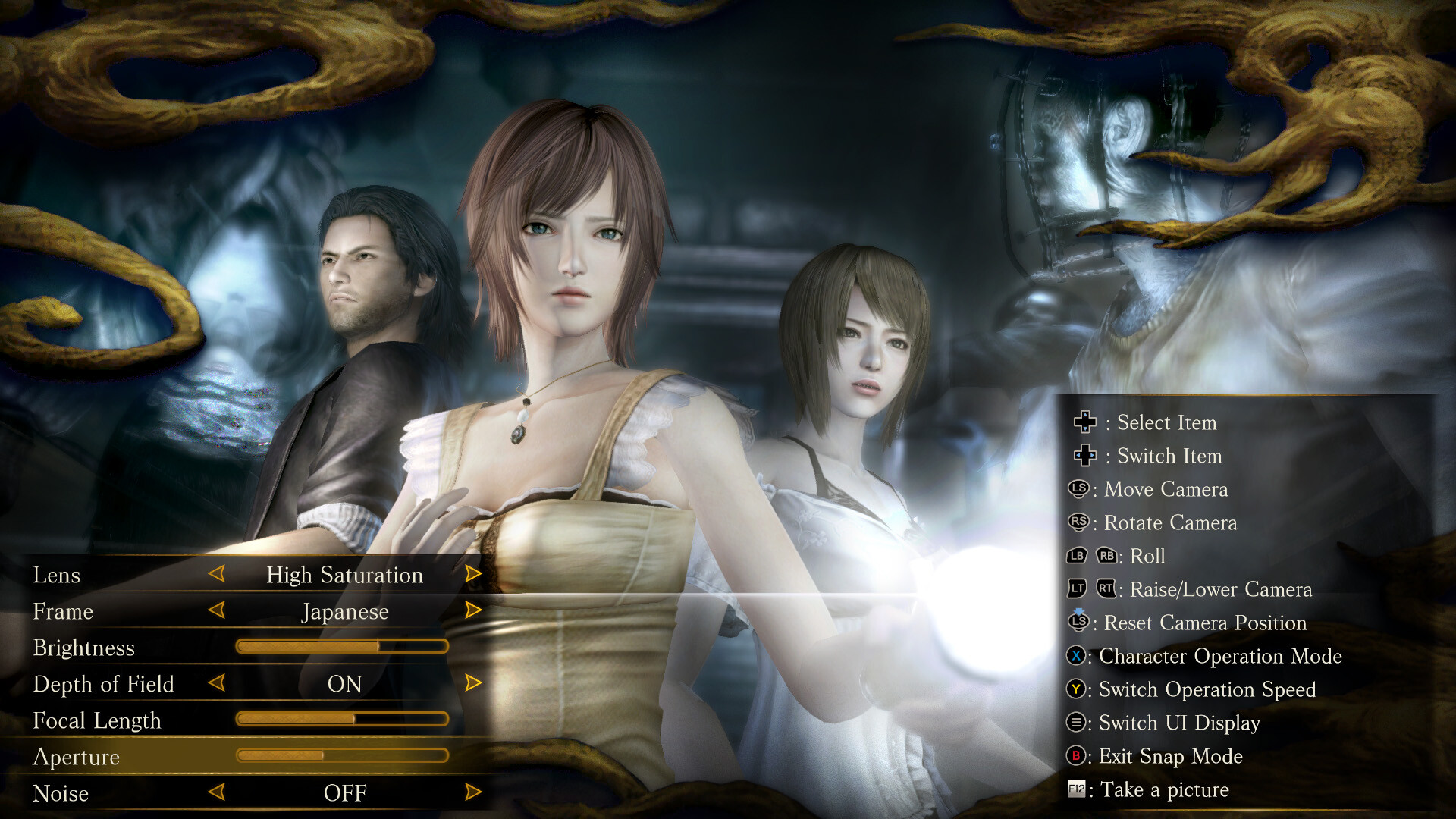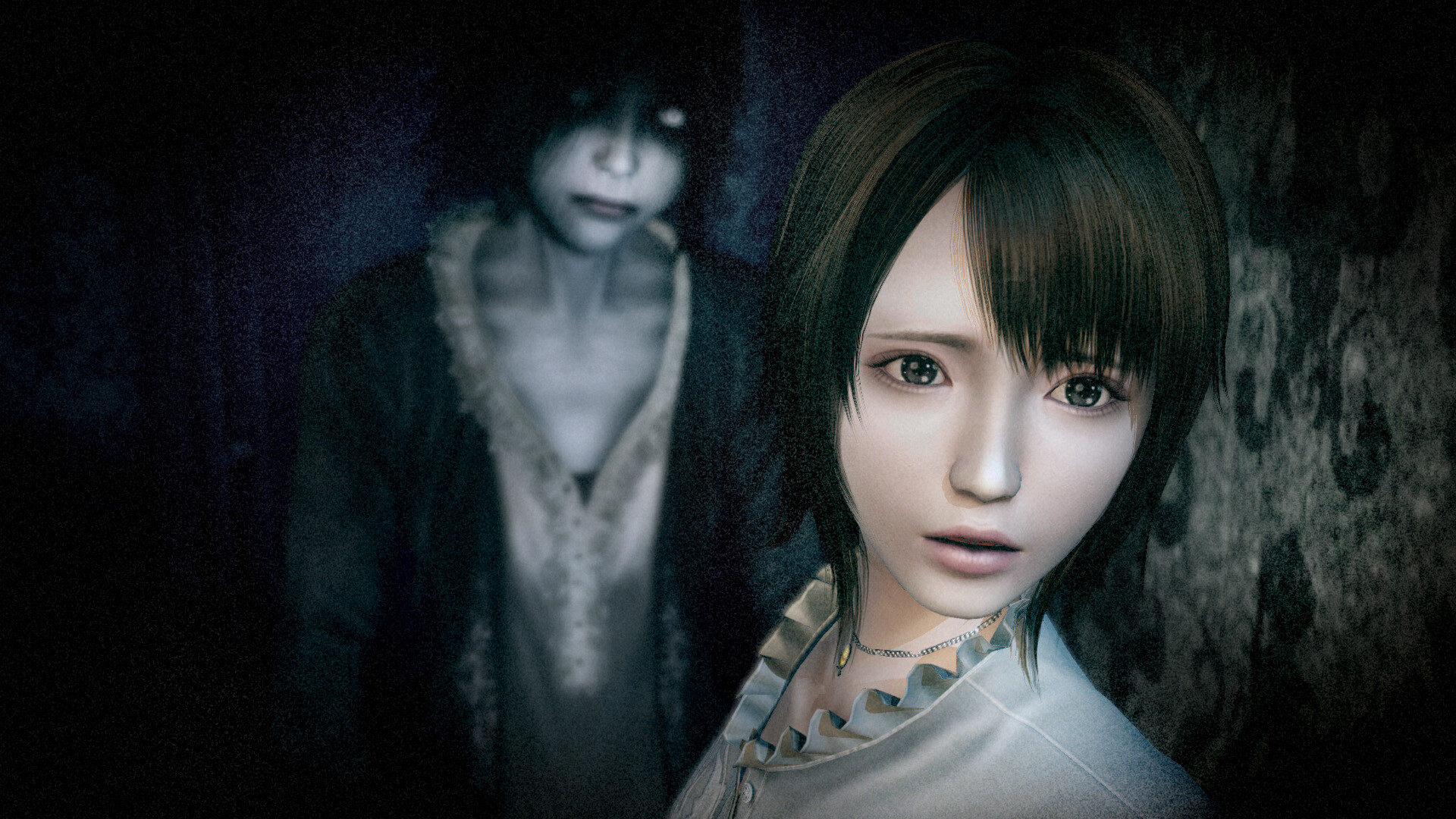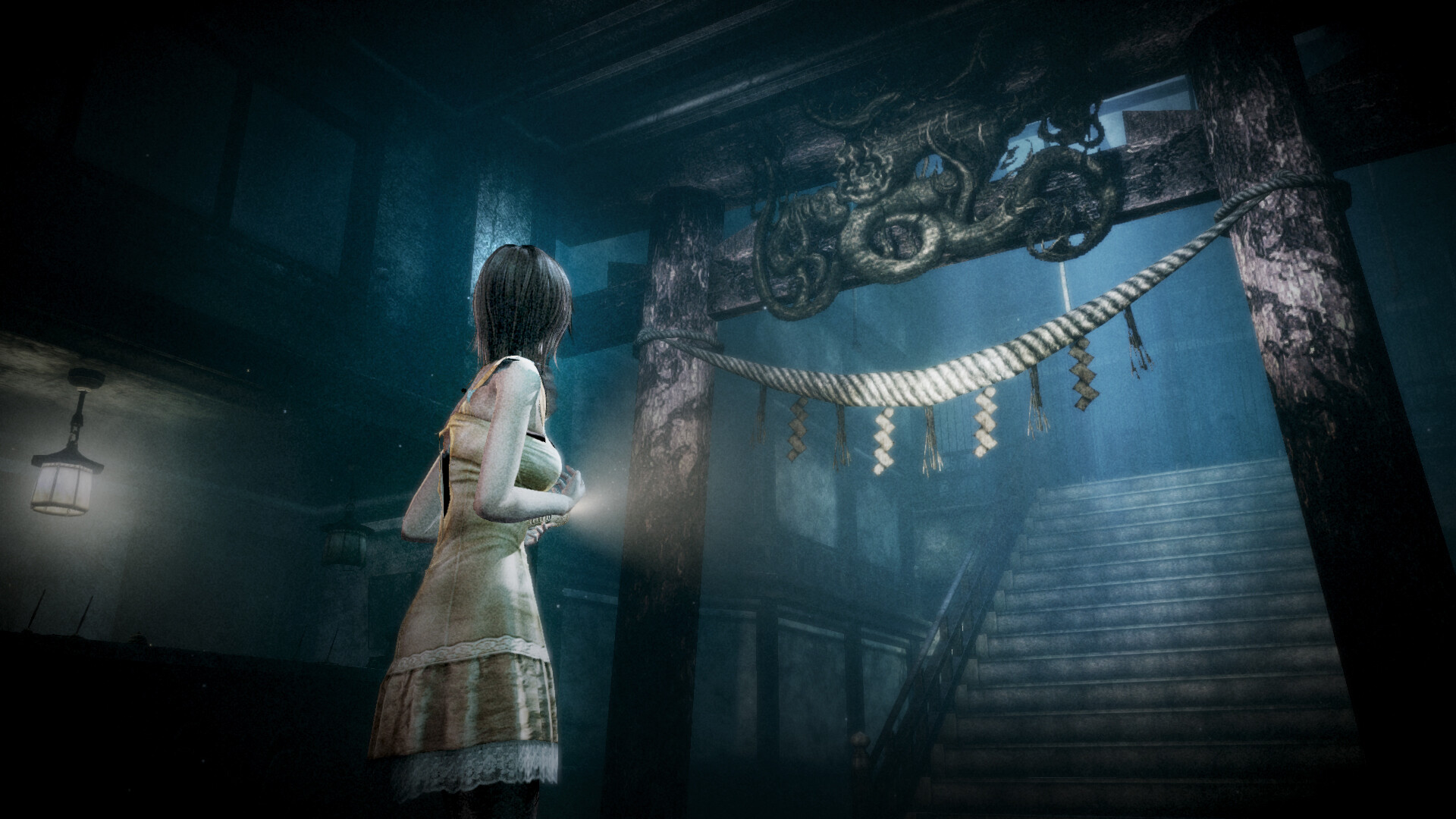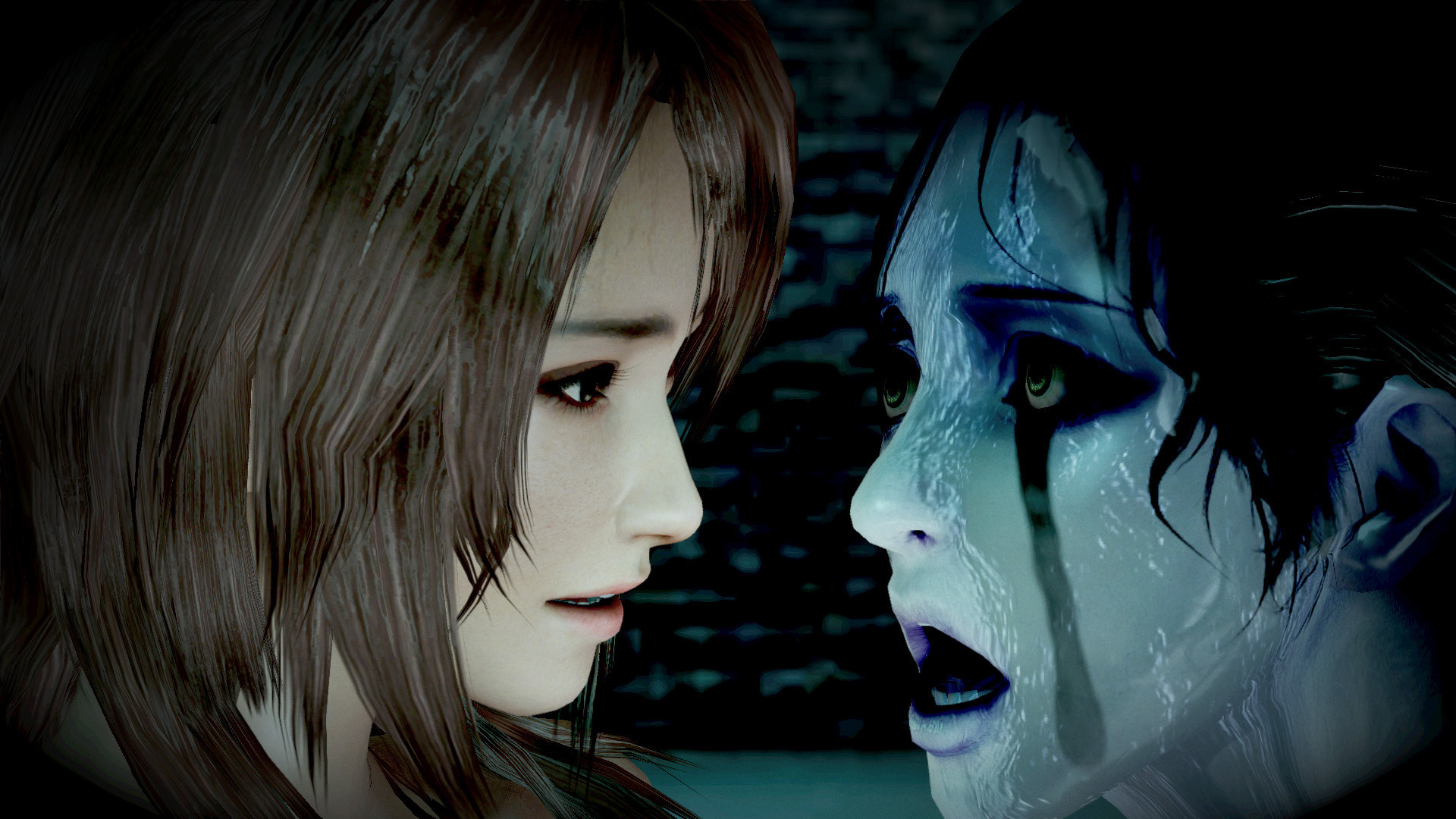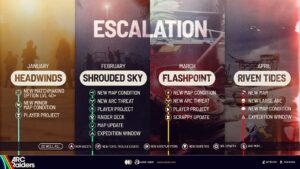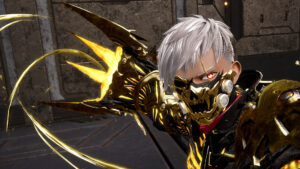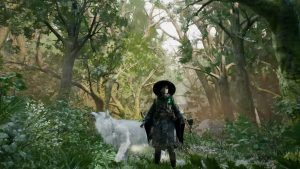
After the relative success of Fatal Frame: Maiden of Black Water’s remaster, Koei Tecmo is releasing Fatal Frame: Mask of the Lunar Eclipse for Xbox Series X/S, PS4, Nintendo Switch, PS5, PC, Xbox One, and PC on March 9th. The Nintendo Wii title originally launched in 2008 and has only been available in Japan to date. It’s the first time Western audiences can play it, with various improvements to the visuals, the addition of Snap Mode, and much more. Here are 12 things you should know before buying it.
Story
Ten years before the game’s story properly kicks off, five girls were kidnapped by serial killer Yō Haibara on Rougetsu island. They were housed in a sanatorium, and though discovered safely in a cavern below the building, their memories had been wiped. In 1972, just two years after these events, Rougetsu’s people died due to a catastrophe.
Even stranger is that in 1980, another eight years later, two of the surviving girls also died. What’s going on? What is Moonlight Syndrome, and what was the reason behind the initial kidnappings? Unclear, but the three remaining survivors and detective Chōshirō Kirishima, who solved the case of their disappearance in 1970, return to Rougetsu for answers. And it’s not long before hostile spirits come calling.
Characters
Fatal Frame: Mask of the Lunar Eclipse offers a whopping four characters to play as. The game starts with Misaki Asou (descended from Dr Kunihiko Asou, the creator of the Camera Obscura) and Madoka Tsukimori, two survivors of the incident in 1970. Ruka Minazuki eventually joins them, and while vaguely recalling a childhood tragedy, she can’t quite remember what happened. The fourth character is Choushiro Kirishima, the detective who still seeks Haibara before becoming embroiled in current-day events.
Improved Visuals
Like Fatal Frame: Maiden of Black Water, this remaster features an HD resolution and improvements to its in-game cinematics and character models. Shadows and lights also look more realistic, resulting in a creepier experience. Environmental textures and effects are significantly more detailed as well, compared to the original. While not classified as a remake, a hefty amount of work has been done to bring the horror title to the current generation of consoles and PC.
Camera Obscura
A central gameplay mechanic of the series, the Camera Obscura is what allows players to fight back against evil spirits on Rougetsu. Once pointed at an enemy, the camera must linger briefly before taking pictures. Film types, from low quality to rare film, along with shot angles and distance, can affect how much damage you deal, with the “Fatal Frame” shot dealing the most. Shots are graded, and points are awarded. These are used to purchase items for health recovery, and the camera is eventually upgraded to deal more damage and take less time to reload.
Spirit Flashlight
Along with the usual flashlight, there’s also the Spirit Stone Flashlight. Also developed by Dr Asou, it unleashes bursts of moonlight and can be used to damage spirits. In the original Wii version, players could aim it vertically and horizontally using motion controls. While there aren’t any motion controls in the remaster, it should offer finer control than when it appeared in Maiden of Black Water.
Exploration
Of course, anyone who’s played the previous games will know that you aren’t just running around, photographing spirits and shining a light on them. Fatal Frame’s appeal has always been in the atmospheric, psychological horror which slowly builds as you explore the environment. Mask of the Lunar Eclipse offers various spooky locations, from old mansions and the abandoned sanatorium to the mysterious Cape Tsukuyomi lighthouse, and you’ll discover different items that will help in progressing forward. You’ll obtain various newspaper articles, notes and other information to provide more backstory on Rougetsu’s history and restore the playable characters’ memories.
Gameplay Sequence Changes
The remaster is ostensibly the same as the original – outside of new costumes, there are no new rooms, gameplay mechanics or endings (at least none that we currently know of). However, changes have been made to the controls and camera to make it “easier to explore” as per the developer. Gimmicks that make sounds, like the telephone, radios, music boxes, and so on, have also been placed, further reinforcing the connection between sound and memory. Good news for those who struggled with the piano in the original version – the remaster makes it much easier to play the keys thanks to revised controls.
Photo Mode
Perhaps the biggest new addition with this remaster is Photo Mode, aka Snap Mode. Introduced in Maiden of Black Water, it allows for pausing the game and taking pictures while adjusting parameters like camera movement, position, distance, and more. You can adjust the operation mode and speed while fiddling with different lens types, depth of field, focal length, aperture, brightness and frames. If you want to photograph Ruka with a bunch of evil spirits in some deranged selfie, have at it.
New Game Plus and Difficulty Options
After completing the base game’s story, New Game Plus becomes available. As the name suggests, you can replay the story, and unlock more costumes. There are also more items and upgrades to obtain based on scores obtained in your first playthrough. You can also opt for higher difficulties like Hard or Nightmare, which causes the spirits to take and deal more damage while limiting your item-buying options.
Free Previous-to-Current-Gen Upgrades
Like Fatal Frame: Maiden of Black Water, Mask of the Lunar Eclipse supports Smart Delivery on Xbox. You only have to buy the game once, and it’s playable on Xbox One and Xbox Series X/S. Purchasing it on the PlayStation Store also provides the PS4 and PS5 digital versions to play. No fuss about paid upgrades here.
Save Data Bonus
If you completed Maiden of Black Water and have save data for it on the same platform, you can receive a free cosmetic in Fatal Frame: Mask of the Lunar Eclipse. It’s the Camera Obscura Hat, which turns a protagonist’s head into the iconic camera. A weird addition, for sure, and it doesn’t have any tangible gameplay benefits, but at least it looks cool.
Playtime
Unfortunately, those expecting a significantly longer experience than Maiden of Black Water may be somewhat disappointed. According to HowLongToBeat, Mask of the Lunar Eclipse on the Nintendo Wii takes about 10 to 13 hours to complete the story on average and 17 to 18 hours for a completionist run. Maiden of Black Water, meanwhile, takes about 11 to 15 hours on average to complete the story but about 26 to 31 hours if you’re trying to complete everything.








